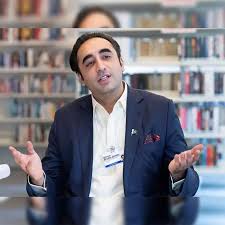Bilawal Bhutto Zardari: The Young Voice of Pakistan’s Politics

Introduction
Bilawal Bhutto Zardari, the chairman of the Pakistan Peoples Party (PPP), is a prominent figure in Pakistani politics. As the son of former Prime Minister Benazir Bhutto and former President Asif Ali Zardari, he has inherited a significant political legacy. His role is particularly crucial amidst the current political turmoil in Pakistan, where governance and economic challenges are at the forefront of public concern.
Background
Bilawal, born on September 21, 1988, in Karachi, ascended to his leadership role at a very young age after the tragic assassination of his mother, Benazir Bhutto, in 2007. His early involvement in politics began when he was elected to the National Assembly of Pakistan in 2018, where he represented the Larkana constituency, a family stronghold. Since taking on the reins of the PPP, he has aimed to rejuvenate the party and attract younger voters.
Recent Developments
Recently, Bilawal has been vocal about his stance on pressing national issues. During the ongoing economic crises, marked by inflation and unemployment, he has urged for inclusion and unity across political lines to address these urgent challenges. In a recent rally, he criticized the government’s measures to control the economic situation, attributing the crisis to poor governance.
In addition, Bilawal has emphasized the significance of enhancing relations with neighboring countries. His call for a foreign policy that promotes peace and collaboration reflects his broader vision for a more stable and prosperous Pakistan. As the political landscape shifts, with tensions rising and alliances forming, Bilawal’s leadership is being closely watched by both supporters and critics.
Conclusion
Bilawal Bhutto Zardari’s rise in the political arena symbolizes the potential for new leadership in Pakistan’s complex political environment. His youthful energy combined with a rich political heritage positions him uniquely in the struggle for democracy and governance in the country. As the nation heads towards the next elections in 2024, his actions and decisions will play a crucial role in shaping the political future of Pakistan. Observers and citizens alike are keenly awaiting how he will navigate both the challenges and opportunities that lie ahead, hoping that he may inspire a new generation to engage in Pakistan’s political landscape.









